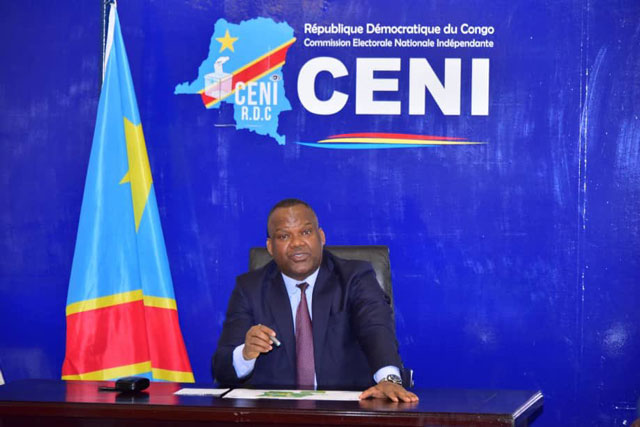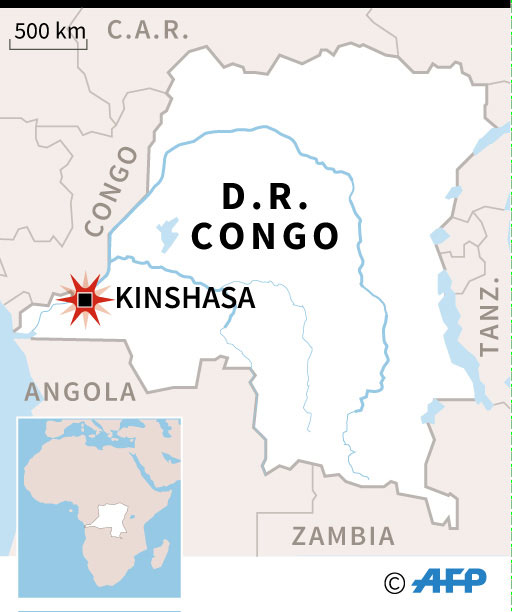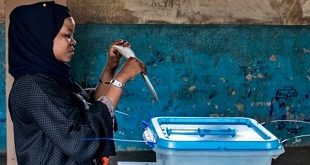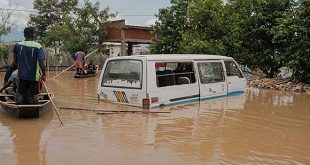
Kinshasa, DR Congo | AFP | DR Congo’s troubled journey to elect a successor to President Joseph Kabila hit a fresh snag Thursday, three days before voting, as electoral supervisors ordered a week-long postponement after a fire destroyed polling equipment.
The delay marks the latest twist in a two-year-old saga that has plunged the central African country into a political crisis and sparked deadly clashes.
The head of the Independent National Election Commission (CENI), Corneille Nangaa, said a warehouse fire on December 13 had destroyed voting machines and ballot papers for the capital Kinshasa.
Attempts are underway to bring replacements, but these will not be available in time for voting on Sunday, he told reporters.
“The presidential, legislative and provincial elections will therefore take place on December 30, 2018,” Nangaa said.
“The electoral process continues,” he insisted.
But in a climate rich with suspicion, opposition leaders were swift to voice their anger ahead of his announcement, and small groups of protestors gathered.
“No delay can be justified,” said Martin Fayulu, one of two opposition frontrunners.
Kabila and Nangaa would bear “full responsibility for this charade,” he said.
His statement was also signed by two heavyweights who have been barred from contesting the election — the exiled former governor of Katanga, Moise Katumbi, and former warlord Jean-Pierre Bemba.
The chief prosecutor at the International Criminal Court in The Hague, Fatou Bensouda, meanwhile, issued a warning about the country’s deep problems.
The situation poses “the risk of escalating violence that could lead to the commission of grave crimes,” Bensouda said. The statement was issued before the postponement announcement.

– Country in crisis –
Africa’s second biggest country, the Democratic Republic of Congo is also arguably the continent’s most volatile.
It has never experienced a peaceful transition of power since it gained independence from Belgium in 1960.
Since 1996, it has experienced two major wars that left millions of dead, and two ongoing conflicts in the centre and east of the country that have caused hundreds of thousands to flee their homes.
Fears of another bloodbath have haunted the nation after it was plunged into a political crisis in 2016 over Kabila’s future.
In power since 2001 after succeeding his assassinated father, Kabila, 47, was due to step down after reaching the end of his constitution-limited two terms in office.
But he stayed on, invoking a caretaker clause in the constitution that enables a president to stay in office until his or her successor is elected.
The elections were postponed until the end of 2017 under a deal brokered by the powerful Catholic church, and then again until 2018.
The delay sparked protests that were violently suppressed, with dozens of deaths, leading to an outcry by western nations and the UN.
One of the figures behind the crackdown is Kabila’s hand-picked successor, Emmanuel Ramazani Shadary, a hardline former interior minister.
– Contested machines –
The announcement on Thursday concerns the loss of South Korean-made touchscreen voting machines introduced for the poll.
Under the system, a voter touches a photo of the candidate to cast their ballot and then receives a printout of it. The paper is then put in a ballot box to provide verification by a manual count later.
The government said the machines were vital for staging elections swiftly, fairly and accurately across a vast country with poor infrastructure.
But the devices sparked a political storm from the outset, with some opposition leaders — although not all — saying they were vulnerable to hacking and fraud.
On December 13, a fire broke out in a Kinshasa warehouse, destroying around 8,000 of some 10,000 machines earmarked for the capital, Kinshasa, according to CENI.
More than a tenth of the country’s 44 million registered voters live in the city.
Nangaa said his organisation had brought to Kinshasa surplus machines that it had in the provinces.
“However, the problem is that our reserve stocks do not include ballot papers. We therefore have had to order them from the South Korean supplier,” he said.
“Five million ballot papers have been ordered,” he said.
 The Independent Uganda: You get the Truth we Pay the Price
The Independent Uganda: You get the Truth we Pay the Price


